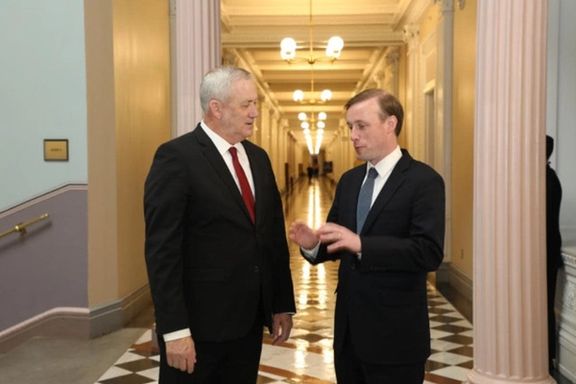US Holds To Diplomacy As Nuclear Talks Drift On

Following the latest exchange of views by Washington and Tehran over reviving the 2015 nuclear deal, the process may drift towards mid-September.

Following the latest exchange of views by Washington and Tehran over reviving the 2015 nuclear deal, the process may drift towards mid-September.
One remaining point of difference centers on Iran’s demand that the International Atomic Energy Agency (IAEA) shelve its enquiries into Tehran’s pre-2003 nuclear work. The US – backed by the ‘E3’ of France, Germany, and the United Kingdom – argued this is a separate issue from efforts to revive the 2015 deal, the JCPOA (Joint Comprehensive Plan of Action).
The IAEA board of governors, made up of 35 member states, convenes September 12-16, three months after it passed a motion moved by the US and the E3 censuring Iran over its failure to satisfy the agency over unexplained uranium traces found by inspectors in sites used before 2003.
Bloomberg reported “officials familiar with the talks” Friday saying they thought it might take “several weeks” to resolve US-Iran differences centered on both the IAEA probe and Iran’s expectation that it be cushioned against adverse effects of the US once again leaving the JCPOA.
Oil prices
Bloomberg noted keen interest in the talks among both oil traders and politicians around the world wary over rising energy prices given the Ukraine crisis. Iran has at least 150 million barrels of oil in storage that could return to the market if the US eased sanctions under a revived JCPOA.
Iran said Wednesday it was reviewing a US response to Iran’s own response of August 15 to European Union proposals made August 8 aimed at concluding 16-month talks between Iran and world powers over restoring the JCPOA, from which President Donald Trump withdrew the US in 2018. US ‘maximum pressure’ sanctions prodded Iran in turn after 2019 to expand its nuclear program and restrict the access of IAEA inspections to those required under the Nuclear Non-Proliferation treaty.
Rafael Mariano Grossi, the IAEA director-general, said this week in an interview with PBS that restoring the JCPOA would allow inspectors greater access – implying that the uranium traces might be more easily investigated with the 2015 agreement back in place.
But opponents of the JCPOA in the US may expect further action against Iran at the IAEA board meeting beginning September 12. Subsequent Republican gains in the November 8 mid-term elections would strengthen voice in Congress critical of the approach taken by President Joe Biden.
‘Credible military threat’
A White House statement Friday after a meeting between National Security Advisor Jake Sullivan and Benny Gantz, Israeli defense minister, said the two had discussed the “US commitment to ensure Iran never develops a nuclear weapon, and the need to counter threats from Iran and Iran-based proxies.”
Successive Israeli governments have opposed the JCPOA and efforts to restore it, while Israel is widely thought responsible for killing Iranian scientists and for attacks on Iranian nuclear sites – actions that led Iran to expand its nuclear program and restrict IAEA access.
Israeli journalist Barak Ravid tweeted Friday he had been informed by an Israeli official that Gantz had “reiterated the need for a credible US military threat against Iran.”
Gantz had welcomed, Ravid wrote, US airstrikes against targets in Deir al-Zour province Syria, which Washington said were a response to attacks on US forces in Syria ostensibly to combat the Islamic State group (Isis).But while Defense Secretary Colin Kahl framed the strikes as a response to “Iranian and Iranian-backed aggression,” the Biden administration rejects the Israeli leadership’s view that Iran’s support for Syrian President Bashar al-Assad or Hezbollah in Lebanon rules out restoring the JCPOA.